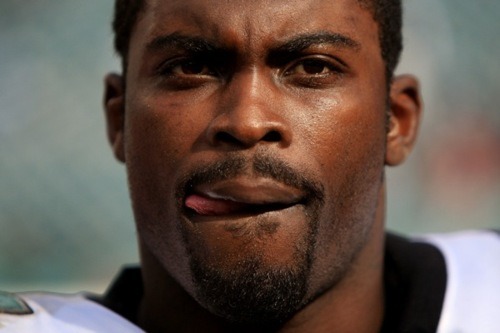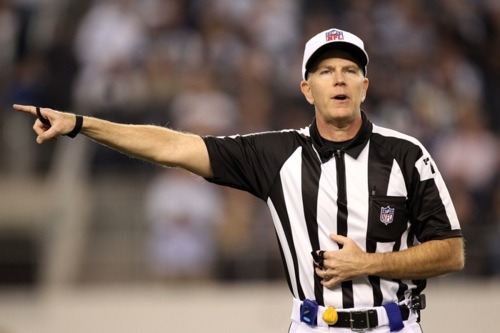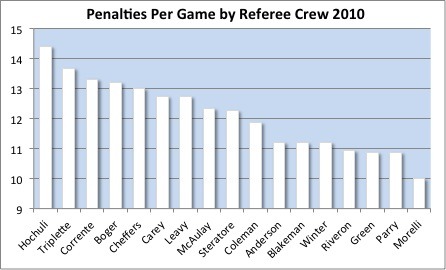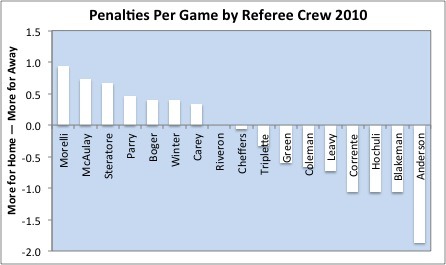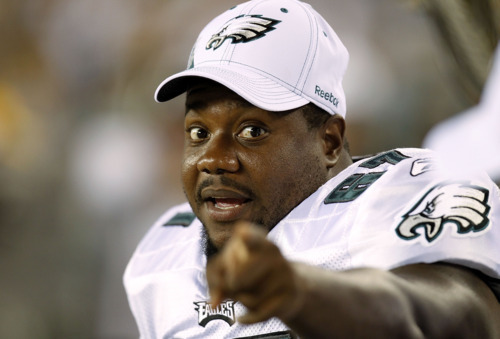
Over the years, the Eagles have often been lauded for their overall draft strategy of trading back and picking up lots of extra draft picks. Unlike a lot of teams that put all of their eggs in a few baskets, the Eagles understand that the draft is just a giant gamble, and the more times you play the more likely you are to win.
Rubeun Frank over at CSN Philly is the most recent to praise this style of drafting. He noted that (after four trades) Howie Roseman turned a second round pick from last year into six players: Daniel Te’o-Nesheim, Mike Kafka, Clay Harbor, Ricky Sapp, Riley Cooper and Dion Lewis. That’s certainly impressive considering the team could have had only one player and instead were able to draft six. But, to play devil’s advocate for a minute, might that have been the wrong move?
It’s too early too tell for sure, but right now none of those six players look like starters, at least yet. Te’o-Nesheim barely got on the field, Kafka was mostly inactive, Harbor got some minutes but only as back up, Sapp missed the year with a knee injury, Cooper is fourth-string, and Lewis was just drafted. That’s six players who might contribute down the road, but none of them look like potential stars, or even starters this coming season. It’s tough to isolate even one of them who’s sure to be a big contributor with the team.
Instead, the team could have picked a second round player, like Dallas did in the spot the Eagles traded out of last year, number 55 overall: linebacker Sean Lee. Obviously, Lee isn’t a guaranteed long-term starter, let alone star, but he showed more potential last season in limited play than any of the six players the Eagles received in return. Lee was named NFC defensive player of the week for his performance in week 13 against the Colts, in which he made nine tackles, broke up two passes, and made two key interceptions — including one that he returned for a touchdown. Again, the future is still murky for all of these players. But, while you might disagree with me, I hesitate to name a single player of those six the Eagles drafted who has the potential to be as good as Lee.
 The truth about the Eagles draft strategy is that it amasses lots of extra draft picks, but most of these picks come in the later rounds when many of the players won’t even make the team long term. Look at the table at right. Yes, over the last four drafts the Eagles have made 10 more selections than the average team — but all them came in the second half of the draft. In fact, despite their numerous picks, the team has actually drafted fewer players in the first three rounds than average.
The truth about the Eagles draft strategy is that it amasses lots of extra draft picks, but most of these picks come in the later rounds when many of the players won’t even make the team long term. Look at the table at right. Yes, over the last four drafts the Eagles have made 10 more selections than the average team — but all them came in the second half of the draft. In fact, despite their numerous picks, the team has actually drafted fewer players in the first three rounds than average.
Sure, there are tradeoffs involved either way. But would you rather make 11 early picks and 31 late-round selections like the Eagles did, or go the Patriots route — 19 picks in 1st-3rd rounds and 18 after that? Look at the rising stars on the team, and consider where they were drafted: Jeremy Maclin (1st round), DeSean Jackson (2nd), LeSean McCoy (2nd), Nate Allen (2nd), Brandon Graham (1st).
The Eagles give themselves a lot of chances to succeed by gathering draft picks the way a kid runs house to house for candy on Halloween. But at the end of the night the danger is that they end up with lots of raisin boxes and mysterious hard candies rather than one or two big Reese’s Peanut Butter Cups or Snickers bars that they really crave.
Originally published at NBC Philadelphia. Photo from Getty.
